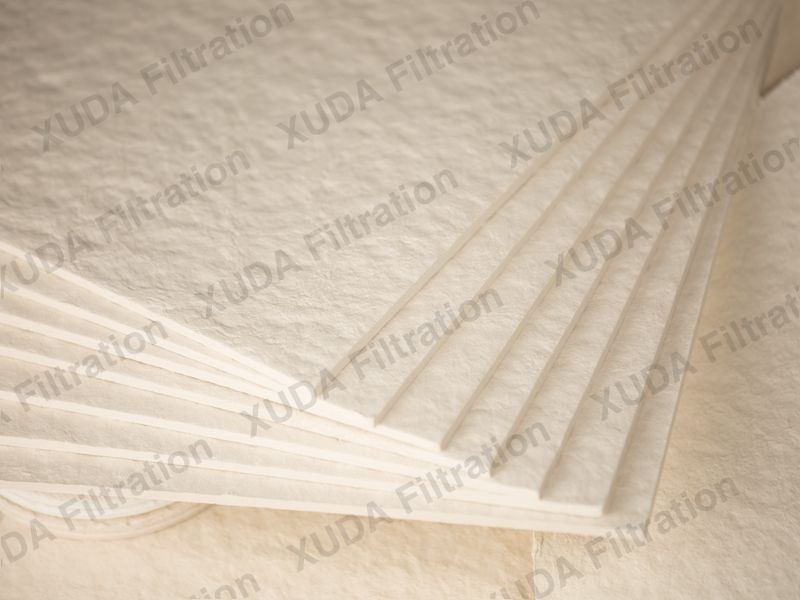Top 5 Uses of Water Filter Paper for Clean and Safe Filtration
When it comes to maintaining clean, safe, and contaminant-free water, water filter paper plays a critical role in both domestic and industrial applications. This unsung hero of filtration ensures that unwanted particulates, harmful microorganisms, and undesirable chemicals are removed efficiently. Below, we explore the top 5 uses of water filter paper, offering insights into how this simple yet powerful tool contributes to healthier environments, safer consumption, and enhanced analytical results.
1. Laboratory-Grade Water Filtration: Precision in Analytical Testing
In the realm of scientific research and analytical chemistry, filter paper is indispensable. Laboratories around the globe rely on qualitative and quantitative filter papers to isolate impurities and particles from water samples.
Qualitative filter paper is commonly used for general filtration where the presence or absence of a substance needs to be determined, such as identifying precipitates or testing for contaminants.
Quantitative filter paper, often ashless, is designed for gravimetric analysis, where exact quantities of substances must be measured after filtration.
By offering controlled pore size, chemical stability, and consistent flow rates, laboratory-grade filter paper ensures accurate, repeatable results—an essential component in environmental studies, pharmaceutical testing, and quality assurance processes.
2. Drinking Water Purification: Safe Water at Your Fingertips
For millions around the world, access to safe drinking water remains a challenge. Water filter paper serves as an effective pre-filtration method in household filtration systems, including gravity-based filters, pitcher filters, and DIY filtration kits.
The fine porous structure captures dust, microplastics, dirt, and organic residues.
When combined with activated carbon layers or UV disinfection units, filter paper greatly enhances overall purification efficiency.
Additionally, in emergency relief situations, portable filtration units equipped with filter paper are critical for reducing turbidity and filtering disease-causing organisms. This not only protects health but also reduces dependency on bottled water, thereby contributing to sustainability.
3. Industrial Wastewater Treatment: Enhancing Environmental Compliance
Industries that produce wastewater effluents—such as chemical manufacturing, textile dyeing, metal plating, and food processing—must adhere to strict environmental regulations. Here, filter paper serves as a pre-treatment or polishing filter, helping to reduce solids and contaminants before discharge or further treatment.
Key benefits include:
Capturing oil residues, heavy metals, and insoluble particles.
Preventing clogging in downstream equipment like membranes or resins.
Cost-effective and easy-to-replace filtration media for batch or continuous processing systems.
By incorporating high-capacity filter paper into their systems, industrial facilities can meet EPA or local water quality standards, protect local ecosystems, and avoid costly penalties.
4. Aquatic Life Support Systems: Clarity and Safety for Aquariums and Fish Farms
Whether it's a home aquarium or a commercial aquaculture operation, water clarity and purity are essential to maintaining aquatic life health. Filter paper, often used in mechanical filtration units, serves as the first line of defense against suspended solids.
Applications include:
Removing uneaten food, algae, and organic waste.
Pre-filtering before biological or chemical filtration stages.
Enhancing oxygen levels by reducing water cloudiness, which interferes with gas exchange.
In recirculating aquaculture systems (RAS), using water filter paper not only promotes better fish health but also improves feed efficiency and reduces the risk of disease outbreaks—making it an eco-friendly, budget-conscious solution for aquafarmers.
5. Medical and Pharmaceutical Water Filtration: Uncompromising Sterility
Clean water is fundamental in the medical and pharmaceutical industries, where sterility and contaminant control are non-negotiable. Here, filter paper is used to remove pyrogens, bacteria, and suspended particles from water used in processes ranging from drug formulation to instrument cleaning.
Advantages include:
Maintaining integrity of sensitive pharmaceutical compounds by preventing contamination.
Providing particle-free water for intravenous preparations, lab rinses, and microbiological assays.
Supporting Good Manufacturing Practice (GMP) compliance through standardized filtration procedures.
In hospitals and clinics, water filtered with medical-grade filter paper also aids in preventing nosocomial infections, safeguarding both patient and practitioner.
Conclusion: Clean Water Starts with the Right Filtration Media
Water filter paper, though simple in design, plays a foundational role in the pursuit of safe water. Whether it's safeguarding human health, supporting scientific discovery, enabling sustainable industry, or protecting marine life, its utility cannot be overstated. As the global demand for clean water grows, choosing the right filtration medium becomes critical—and filter paper remains one of the most reliable, adaptable, and cost-effective solutions available.
Previous
None
Next
None
If you are interested in sending in a Guest Blogger Submission,welcome to write for us!




Comments
0